
Idries Shah, also known as Idris Shah, né Sayed Idries el-Hashimi and by the pen name Arkon Daraul, was an Afghan author, thinker and teacher in the Sufi tradition. Shah wrote over three dozen books on topics ranging from psychology and spirituality to travelogues and culture studies.
Arthur J. Deikman was an American physician who was a clinical professor of psychiatry at the University of California, San Francisco, and a member of the editorial board of the Journal of Humanistic Psychology and Human Givens. He was also a contributor to The Journal of Nervous and Mental Disease.
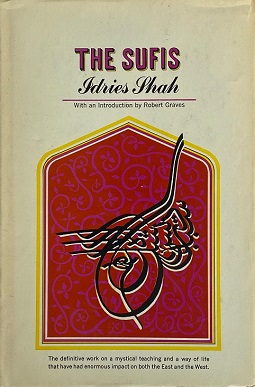
The Sufis is one of the best known books on Sufism by the writer Idries Shah. First published in 1964 with an introduction by Robert Graves, it introduced Sufi ideas to the West in a format acceptable to non-specialists at a time when the study of Sufism had largely become the reserve of Orientalists.
The Institute for Cultural Research (ICR) was a London-based, UK-registered educational charity, events organizer and publisher which aimed to stimulate study, debate, education and research into all aspects of human thought, behaviour and culture. It brought together many distinguished speakers, writers and Fellows over the years.
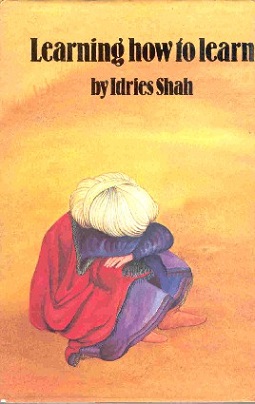
Learning How to Learn: Psychology and Spirituality in the Sufi Way is a book by the writer Idries Shah that was first published by Octagon Press in 1978. Later editions by Harper & Row (1981) and Penguin Books include an introduction by Nobel Prize Winner Doris Lessing.

Knowing How to Know is a book by the writer Idries Shah published posthumously by Octagon Press in 1998. A paperback edition was published in 2000.

Seeker After Truth: A Handbook was written by Idries Shah, one of the foremost writers on Sufism. It was first published by Octagon Press in 1982, and later republished by The Idries Shah Foundation.

A Perfumed Scorpion is a non-fiction book by the Sufist writer, Idries Shah, that was first published by Octagon Press in 1978, the same year that he published two other major works: Learning How to Learn: Psychology and Spirituality in the Sufi Way and The Hundred Tales of Wisdom. It has since been republished by The Idries Shah Foundation.

The Dermis Probe is a book by Idries Shah published by Octagon Press in 1970. A paperback edition was published in 1989 and again in 1993. The stories presented in the book are also available in an audio format.

The Commanding Self is a book by the writer Idries Shah first published by Octagon Press in 1994. A paperback edition was published in 1997.

Tales of the Dervishes by Idries Shah was first published in 1967, and re-published and made available online for free by The Idries Shah Foundation in October 2016.

First published in 1971, Thinkers of the East: Studies in Experientialism was one of several books of Eastern practical philosophy study materials selected and arranged by Idries Shah for a contemporary readership.
Octagon Press was a cross-cultural publishing house based in London, UK. It was founded in 1960 by Sufi teacher, Idries Shah to establish the historical and cultural context for his ideas. The company ceased trading in 2014.
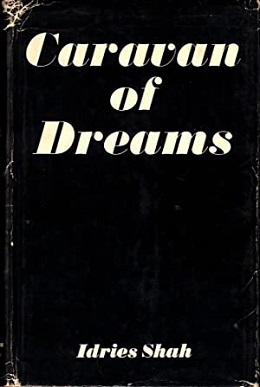
Caravan of Dreams is a book by Idries Shah first published in 1968 by Octagon Press as part of his presentation of traditional Eastern teachings and Sufi ideas for contemporary society. New editions of the book were published in 2015 by The Idries Shah Foundation.

The Elephant in the Dark is a book by the writer Idries Shah, based on lectures he delivered at the University of Geneva as Visiting Professor in 1972–1973. He was invited to speak on the topic of “Salvation as a total surrender to God: an attempt at dialogue between Christians and Muslims.”
The Idries Shah Foundation (ISF) is an independent educational and cultural charity, set up by the family of the late thinker, writer, and teacher in the Sufi mystical tradition, Idries Shah, who wrote over three dozen books on topics ranging from psychology and spirituality to travelogues and culture studies.

The Pleasantries of the Incredible Mullah Nasrudin is a book by the writer Idries Shah, based on lectures he delivered at the University of Geneva as Visiting Professor in 1972–73. The book is a collection of tales, none more than two pages and almost all less than a page long, about the folkloric character Mulla Nasrudin. Published by Octagon Press in 1968, it was re-released in paperback, ebook and audiobook editions by The Idries Shah Foundation in 2015.
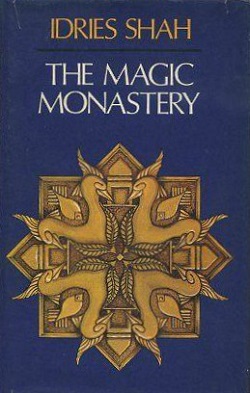
The Magic Monastery is a collection of teaching stories from the Sufi mystical tradition, by the writer Idries Shah, together with some stories by the author himself.
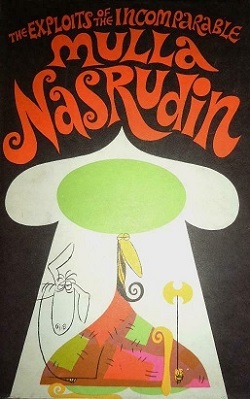
The Exploits of the Incomparable Mulla Nasrudin is a book by the writer Idries Shah, It consists of jokes and anecdotes involving the wise fool of Middle Eastern folklore, Mulla Nasrudin. Published by Octagon Press in 1966, the book was re-released in paperback, ebook and audiobook editions by The Idries Shah Foundation in 2014 and 2015.

Kara Kush, subtitled The Gold of Ahmad Shah, is an adventure novel by the Anglo–Afghan writer, thinker and teacher in the Sufi mystical tradition, Idries Shah.

















